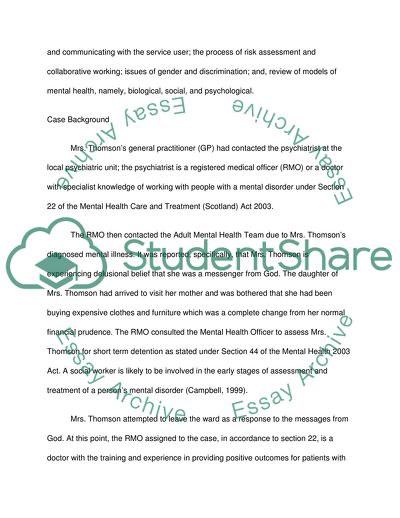Cite this document
(Supportive Mental Health System Case Study Example | Topics and Well Written Essays - 1500 words, n.d.)
Supportive Mental Health System Case Study Example | Topics and Well Written Essays - 1500 words. Retrieved from https://studentshare.org/health-sciences-medicine/1731713-critical-analysis-of-practice-in-mental-health
Supportive Mental Health System Case Study Example | Topics and Well Written Essays - 1500 words. Retrieved from https://studentshare.org/health-sciences-medicine/1731713-critical-analysis-of-practice-in-mental-health
(Supportive Mental Health System Case Study Example | Topics and Well Written Essays - 1500 Words)
Supportive Mental Health System Case Study Example | Topics and Well Written Essays - 1500 Words. https://studentshare.org/health-sciences-medicine/1731713-critical-analysis-of-practice-in-mental-health.
Supportive Mental Health System Case Study Example | Topics and Well Written Essays - 1500 Words. https://studentshare.org/health-sciences-medicine/1731713-critical-analysis-of-practice-in-mental-health.
“Supportive Mental Health System Case Study Example | Topics and Well Written Essays - 1500 Words”. https://studentshare.org/health-sciences-medicine/1731713-critical-analysis-of-practice-in-mental-health.


